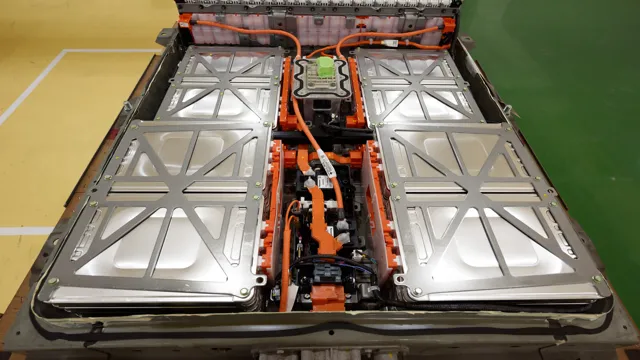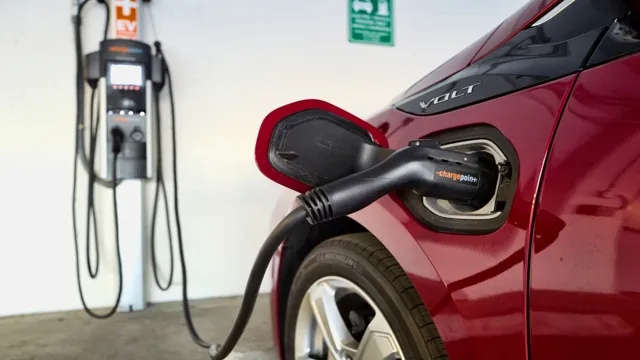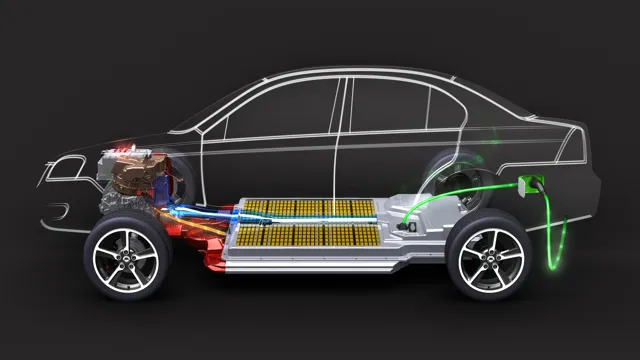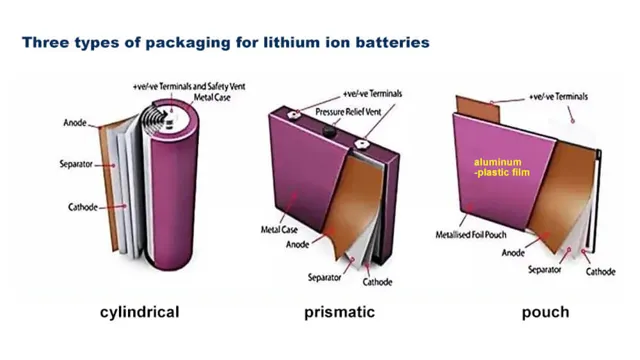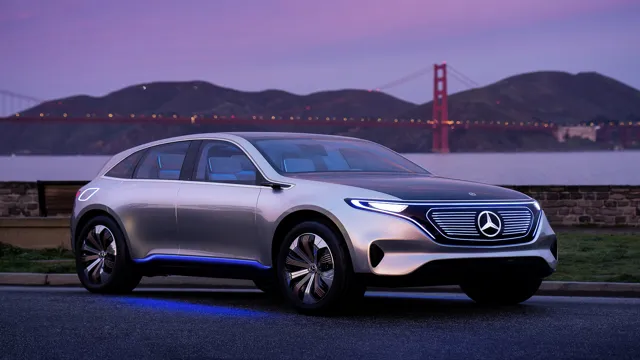Revolutionizing the Future of Electric Cars: A Steady Increase in Battery Capacity per Year!
Electric cars have come a long way in terms of their battery capacity and range, making them a more viable option for consumers looking to make a sustainable choice for their daily commute. As technology continues to advance, there is a growing interest in understanding the rate at which electric car battery capacity is increasing each year. And the answer to this question is quite impressive! It’s amazing to see how much battery capacity has increased in electric vehicles over the past few years.
In this blog post, we will take a look at the data and explore the trends and developments in electric car battery capacity over the years. So, get ready to learn more about the impressive advancements in electric vehicle technology, and how it can benefit the environment and the future of transportation!
Current State of Electric Car Battery Technology
Electric car battery capacity has been increasing steadily over the past few years, with an approximate 5-7% increase per year. This increase is due to advancements in technology and efforts to improve the performance and longevity of electric car batteries. The current state of electric car battery technology has made it possible for vehicles to travel longer distances on a single charge, reducing the need for frequent recharging.
With increasing concerns about climate change and the environment, electric cars are becoming more popular among consumers, and the continued advancements in battery technology are making them even more appealing. As companies like Tesla, Nissan, and General Motors continue to develop and innovate, we can expect to see even greater increases in electric car battery capacity in the years to come, making them a more viable option for those looking to reduce their carbon footprint and embrace sustainable transportation.
Global Average Battery Capacity Increase Over the Years
As technology advances, so does the battery capacity of electric cars. The global average battery capacity has increased significantly over the years. In fact, in 2010 the average battery capacity was only 2
8 kWh, while in 2019 it increased to 55 kWh. The increase in battery capacity means that electric cars can travel longer distances before needing to recharge.
This is a huge breakthrough for the electric car industry as it addresses one of the main concerns of consumers – range anxiety. However, with the current state of electric car battery technology, there is still much room for improvement. Researchers are constantly developing new battery technologies, such as solid-state batteries, to increase energy density and reduce charging times.
These breakthroughs in battery technology will not only make electric vehicles more practical but will also pave the way for a cleaner and more sustainable future.
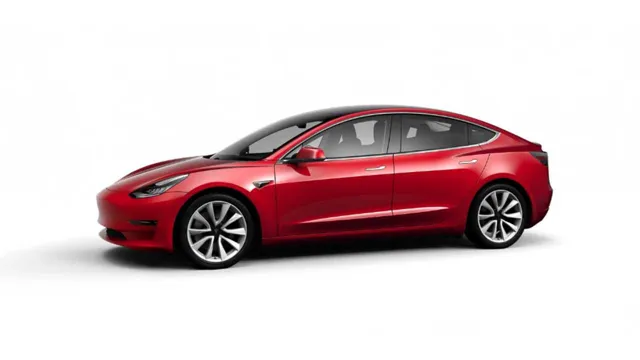
Top Electric Car Models by Battery Capacity Per Year
Electric Car Battery Technology Electric car battery technology has come a long way over the years, and the advancements made are clearly reflected among the top electric car models by battery capacity per year. With the increasing demand for eco-friendly cars, car manufacturers are racing to improve battery efficiency and performance. The Tesla Model S Plaid leads the pack with a whopping 100 kWh battery, with the Lucid Air following closely behind with a 113 kWh battery pack.
Other notable models include the Porsche Taycan with an 94 kWh battery and the Ford Mustang Mach-E with a 88 kWh battery. As battery technology keeps improving, the range of electric vehicles continues to increase, making them more competitive with gas-powered cars.
With these advancements, electric cars are becoming more practical and convenient for daily use. As a result, we’re seeing more people switch to EVs and it’s no surprise that this trend is set to continue in years to come.
Factors Driving Electric Car Battery Capacity Increase
Electric car battery capacity per year increase has been accelerating at an impressive rate over the last decade. One of the key factors driving this increase is the improved chemical composition of the batteries themselves. Modern electric car batteries are designed using nickel-cobalt-aluminum (NCA) or nickel-manganese-cobalt (NMC) cathodes, which have higher energy densities than previous lithium-ion batteries.
Another major factor is the use of advanced manufacturing processes, which are resulting in batteries that are smaller, lighter, and more affordable than ever before. Finally, the growing demand for electric vehicles is also contributing to the increase in battery capacity, as manufacturers are investing heavily in research and development to meet the needs of an increasingly eco-conscious consumer base. As these factors continue to converge, we can expect the trend of increasing electric car battery capacity to persist well into the future.
Advancements in Battery Materials and Design
Electric Car Battery Capacity Increase With the rise of electric vehicles (EVs), battery technology has rapidly developed over the last decade. Advancements in battery materials and design have been the driving force behind the increased capacity of electric car batteries. Lithium-ion technology has dominated the EV market due to its high energy density and long life-cycle, making it the preferred battery choice for major car manufacturers.
However, alternative materials such as solid-state batteries and lithium-sulfur batteries are currently being researched to overcome the limitations of lithium-ion batteries, including safety concerns and cost. Additionally, advancements in battery design have focused on increasing the surface area of battery cells to enhance the flow of ions between them, therefore increasing the battery capacity. These factors have led to significant improvements in EV driving range and reduced charging times, making electric vehicles a more attractive option for consumers and helping to decrease carbon emissions.
As battery technology continues to improve, we can expect to see even more efficient and powerful electric cars on the roads in the near future.
Growing Demand for Longer Battery Life and Range
As electric cars become more popular, the demand for longer battery life and increased range continues to grow. There are a few factors that are driving this demand, including improvements in battery technology and the increasing availability of charging infrastructure. In addition to these advancements, consumers are also becoming more aware of the benefits of electric cars, such as reduced emissions and lower operating costs.
As a result, car manufacturers are working hard to increase the capacity of their electric car batteries to keep up with this growing demand. This increased battery capacity will allow drivers to travel further on a single charge, making electric cars an even more attractive option for those looking to reduce their carbon footprint and save money on gas. Overall, the increasing demand for longer battery life in electric cars is a positive sign for the future of sustainable transportation.
Government Incentives for Electric Car Adoption
As global concerns about the effects of climate change continue to grow, governments around the world are taking action to incentivize the adoption of electric vehicles (EVs). These government initiatives come in the form of tax credits, rebates, and other financial incentives, making the switch to an EV more accessible than ever. Germany, for example, has set a goal of 1 million EVs on its roads by 2020, and has implemented a range of incentives, including subsidies for the purchase of EVs and tax credits for companies that utilize EVs as part of their fleets.
Meanwhile, the Netherlands has exempted EVs from taxation and provided generous subsidies for EV buyers. Such incentives are driving the demand for EVs, which is in turn driving the development of more powerful and efficient batteries. Indeed, as battery technology continues to improve, EV manufacturers are able to develop vehicles with longer range and higher performance specifications.
This virtuous cycle of increasing demand and advancing technology is accelerating the adoption of EVs, making it easier and more appealing than ever for drivers to make the switch.
Future Projections of Electric Car Battery Capacity Increase
Electric car battery capacity has improved significantly over the past few years. Experts predict that this trend will continue, with electric car battery capacity projected to increase by around 5-7% per year in the foreseeable future. This projection means that battery capacity could nearly double by the end of this decade.
The rise in battery capacity is due to advancements in battery technology and economies of scale that come with increased production. The electric vehicle market is also driving the demand for better batteries, which is prompting manufacturers to invest in developing new and more efficient batteries. Improvements in battery capacity will enable longer ranges, faster charging times, and lower prices.
This trend will ultimately drive a surge in the adoption of electric cars and reduce reliance on fossil fuels, meaning that the electric car battery capacity per year increase will be a key factor in realizing a more sustainable and environmentally friendly future.
Expert Predictions of Battery Capacity Increase Per Year
As electric cars become more popular, many experts are predicting future increases in battery capacity. In fact, some experts predict that battery capacity could increase by as much as 40% per year in the coming years. This increase will be driven in part by improvements in battery chemistry, as well as advancements in manufacturing techniques.
Battery capacity is a key factor in the success of electric cars, as it determines the amount of driving range that a car can offer. As batteries get larger, electric cars will be able to travel farther between charges, making them a more convenient and practical choice for many drivers. With these advancements, the future looks bright for electric cars and their ability to revolutionize the automotive industry.
Expected Impact on Electric Car Industry and the Environment
As the push towards more sustainable modes of transportation continues, many are looking towards the electric car industry to lead the way. With advancements in technology and growing demand for electric vehicles, experts project that electric car battery capacity is set to increase significantly in the coming years. This means that electric cars will be able to travel farther on a single charge, making them even more practical for everyday use.
This not only benefits drivers but also has a positive impact on the environment, as it reduces the need for fossil fuels. Imagine being able to travel across the country in an electric vehicle without worrying about frequent recharging stops! With increased battery capacity, this could become a reality in the near future. It is exciting to think about the potential for electric cars to become the norm rather than the exception, and the positive impact this would have on our planet.
Conclusion: The Exciting Future of Electric Car Battery Technology
In conclusion, the increase in electric car battery capacity per year can be likened to the growth of a tree. With each passing year, the tree adds more branches and leaves, just as electric car batteries gain more capacity. These technological advancements are vital for reducing our reliance on fossil fuels and combating climate change.
So, let’s continue to nurture and cultivate this growth, so that we can all drive towards a brighter and cleaner future!”
FAQs
What is the current average annual increase in electric car battery capacity?
The current average annual increase in electric car battery capacity is around 5-8%.
How much has electric car battery capacity increased in the last 5 years?
In the last 5 years, electric car battery capacity has increased by an average of 25-40%.
What are some factors influencing the increase in electric car battery capacity per year?
The increase in electric car battery capacity per year is influenced by factors such as advancements in technology, economies of scale, and research and development.
How do electric car manufacturers plan to further increase battery capacity in the future?
Electric car manufacturers plan to further increase battery capacity in the future through investment in research and development, utilizing new materials and technologies, and building larger manufacturing facilities.
